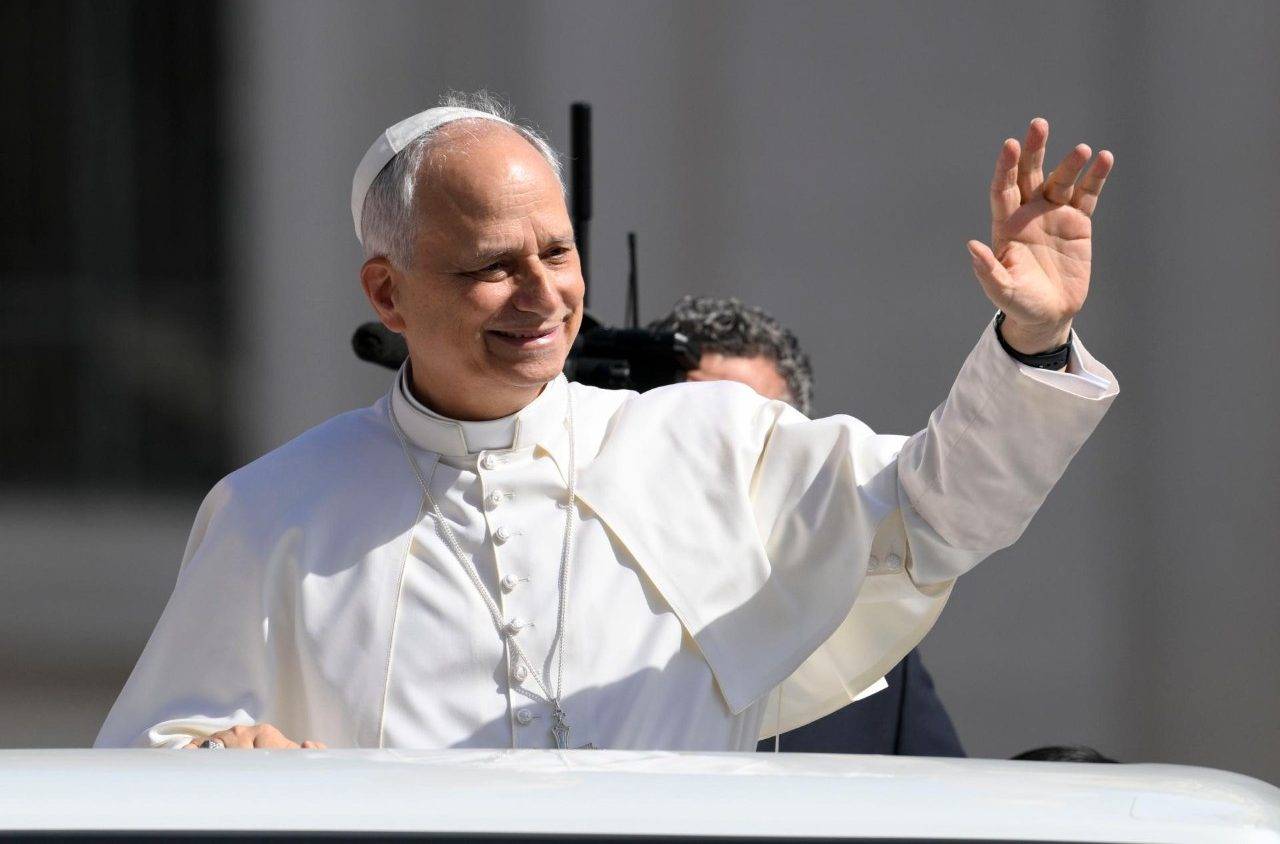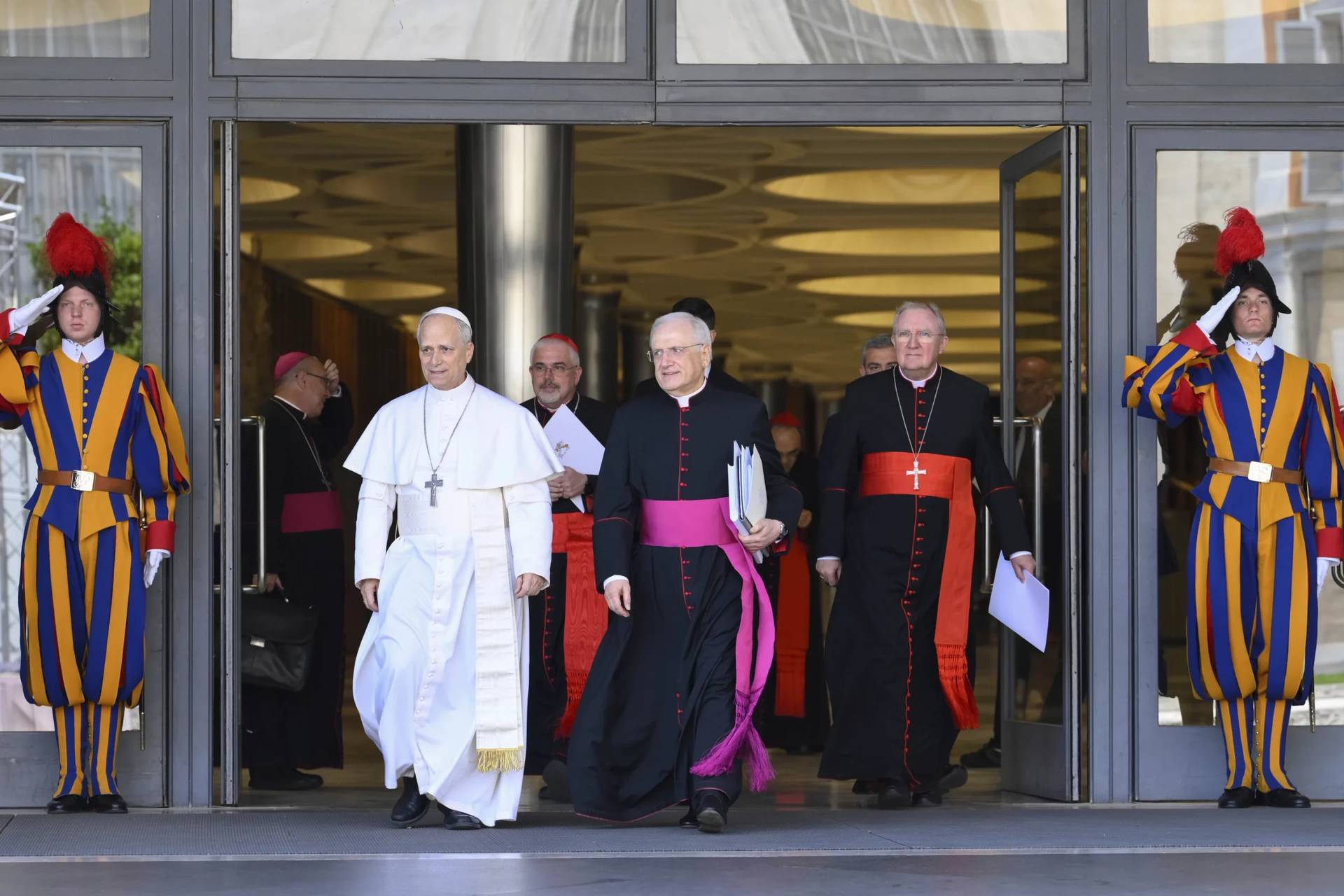ROME – A classic “tree falling in the forest” moment recently unfolded on the Vatican beat, meaning that an important decision was rolled out without any fanfare whatsoever, so much so that one might almost wonder if it really happened at all.
That decision was to revitalize the traditional papal title “Patriarch of the West,” which had been suppressed under Pope Benedict XVI in 2006, but which now appears to be back.
You wouldn’t know of its resurrection, however, from any Vatican announcement, news bulletin, press conference or official statement. The title simply reappeared among the other papal appellations – Bishop of Rome, Vicar of Christ, Successor of the Prince of the Apostles, Supreme Pontiff, Primate of Italy, etc. – in the Annuario Pontificio, the thick red yearbook issued annually by the Vatican containing names, dates, offices, statistics, and so on, which went on sale April 9.
It was actually a couple of days before anyone even noticed that the pope was once again calling himself “Patriarch of the West.” To this moment, there’s been no statement about the decision from the Vatican, let alone any official explanation of the logic behind it.
Paradoxically, reaction both to Benedict’s original decision to suppress the title in 2006, and Francis’s decision to bring it back now, have played to almost precisely the opposite of what common sense might dictate the reactions should be.
Generally speaking, popes renouncing titles associated with historical power and privilege might be expected to delight liberals, reformers and ecumenically minded folk, while reasserting such monikers should play well among traditionalists.
In fact, however, Benedict’s decision aroused opposition precisely in ecumenical circles, where the choice to stop calling himself “Patriarch of the West” was seen as an indirect way of asserting control over the rest of the world too, including the eastern churches of the Orthodox tradition, for whom perceived power grabs by a Roman pontiff remain the stuff of nightmares.
At the time, the Pontifical Council for Christian Unity under German Cardinal Walter Kasper was compelled to issue a statement insisting that while the title “Patriarch of the West” first appeared in 642 under Pope Theodorus I, it never had a clear meaning and had become obsolete since the term “West” no longer has any fixed geographic significance, but rather refers to a cultural matrix that stretches from North America to New Zealand. Renouncing the title didn’t imply any change in the Catholic Church’s recognition of the Eastern patriarchates, the statement said, but was instead simply about “historical and theological realism.”
Apparently, however, one papacy’s realism is another’s dead-end street.
Now that the title has been restored, papal admirers are hailing the decision as ecumenically sensitive, a subtle way of acknowledging that a Roman pontiff has a different kind of authority over the Latin Church, where he’s legally and administratively in charge, than with regard to eastern churches, where his primacy is more a service to unity than about exercising jurisdiction.
That, at least, was the gist of an April 11 piece from Fides, the Vatican’s missionary news service, arguing that restoring the title “Patriarch of the West” is an expression of Francis’s synodal vision of the Church. It also, the piece asserted, reflects a recognition of the traditional Orthodox notion of a “pentarchy” of historical sees which share responsibility for leadership, meaning Constantinople, Alexandria, Antioch and Jerusalem as well as Rome.
Among ecumenically-minded commentators, some have suggested that Francis’s decision to dust off the title should be seen in the context of next year’s 1700th anniversary of the Council of Nicea, when the pontiff has already said he plans to meet Patriarch Bartholomew of Constantinople with a view towards establishing a common date for the celebration of Easter. Hopes are for the two men, joined by as many other Christian leaders as possible, to meet in İznik in modern Turkey, the site of ancient Nicea.
(Next year, which of course is also a jubilee year for the Catholic Church, both western and eastern Christians will celebrate Easter on the same day due to a calendrical coincidence. Ecumenical leaders are hoping to make such a joint date permanent.)
Enzo Bianchi, an Italian lay monk who still carries weight in this papacy despite controversies over his leadership style that saw him exiled in 2020 from the ecumenical monastic community of Bose he founded in 1968, recently praised Francis’s decision to resurrect the “Patriarch of the West” title in an essay for the Italian paper La Repubblica.
“Without clamor, but still important, such gestures demonstrate attention to what hurts, and what brings joy, to our non-Catholic brothers,” Bianchi wrote. “Only if the churches start to walk together, consulting each other and understanding each other like true sisters, can they contribute to a unity that favors all humanity.”
In other words, admirers of this decision are styling it as an historically significant move, with deep ecclesiological significance, and also a potential payoff in a major ecumenical gathering next year.
If all that’s true, then why did the news come out like a thief in the night? Why hasn’t the Vatican trumpeted it in some fashion, calling attention to what at least some experts obviously see as the promise of the decision?
To be fair, there was no great hullabaloo 19 years ago either, when the title was suppressed. It wasn’t until ecumenical partners started complaining that the Vatican said anything out loud. Moreover, it’s also not the habit of the Vatican to publicly announce all the changes in each edition of the Annuario, which tend to be legion. For instance, the 2024 yearbook also revised the official birthdate for Cardinal John Njue of Kenya from 1944 to 1946, meaning he’ll be eligible to vote for the next pope for two more years, and they didn’t put out a news bulletin about that either.
Perhaps an additional factor, however, is this: Maybe Francis and his team simply don’t want to call undue attention to one more case in which Francis has reversed a decision of Benedict XVI.
They’ve been down that road before, of course, and they know well the rancor, heartburn, and animosity it tends to generate, all the more so when it becomes a cause célèbre. They’re probably especially sensitive to such a prospect right now, at a moment when Francis reportedly may be on the verge of making a separate peace with Benedict’s closest aide, Archbishop Georg Gänswein, by naming him a papal ambassador in the Baltics.
In other words, maybe the pope’s PR team wants to play down another perceived conflict between the two popes, or at least to allow others to praise the reversal rather than to seem to be making hay out of it themselves.
If so, perhaps, for once, Vatican discretion isn’t just dysfunction or denial – perhaps it really is, at least in this instance, the better part of valor.













